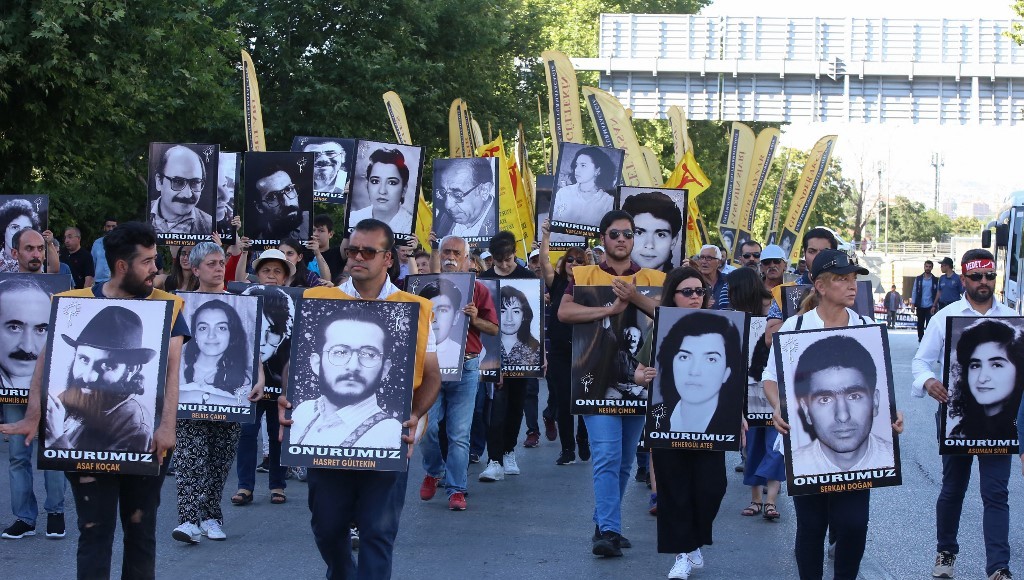Turkish President Recep Tayyip Erdoğan has used his presidential power to pardon a man who was given an aggravated life sentence for his role in the killing of 35 people in the central province of Sivas in 1993, local media reported on Wednesday.
The decision to pardon 78-year-old Hayrettin Gül due to having a chronic illness was published in the Official Gazette on Wednesday. Presidents have the authority to pardon convicts due to advanced age or health problems, according to the 104th article of the Turkish Constitution.
On July 2, 1993 an angry mob torched the Madımak Hotel in Sivas, killing 35 people, mostly artists and scholars of the Alevi sect, who were there to attend a conference hosted by the Pir Sultan Abdal Culture Foundation (PSAKD), an Alevi organization.
A group of radical Islamists, having been provoked by several local political leaders, gathered in front of the hotel following Friday prayer and accused conference participants of being infidels.
Thirty-three conference attendees, two hotel staff members and two protesters died in the fire.
Gül was given the death penalty in 2000, two years before the abolishment of capital punishment in Turkey. His sentence was reduced to aggravated life in 2003, when he was imprisoned in Turkey following his deportation from Germany. Gül will have served only 20 years in prison for the massacre due to Erdoğan’s pardon.
This was the second time Erdoğan used his presidential power to pardon a man convicted of involvement in the 1993 massacre. In 2020 the president also pardoned then-86-year-old Ahmet Turan Kılıç, who had been given an aggravated life sentence, for reasons of health.
Kemal Kılıçdaroğlu, leader of the main opposition Republican People’s Party (CHP), criticized Erdoğan for his decision to pardon Gül, saying once again on X, formerly known as Twitter, that the president “lacks moral legitimacy.”
“Erdoğan … keeps retired generals who have devoted their lives to this country and are over 80 years old in prison while ordering the release of a convicted murderer. Now, tell me. Where is the morality in this?” Kılıçdaroğlu said.
The CHP leader was referring to former generals who were imprisoned due to their role in a
military intervention in Turkey in 1997, known as the February 28 post-modern coup, which didn’t result in direct military rule but forced the late prime minister Necmettin Erbakan to resign after the National Security Council (MGK) issued a memorandum.
